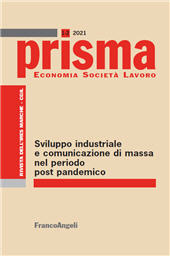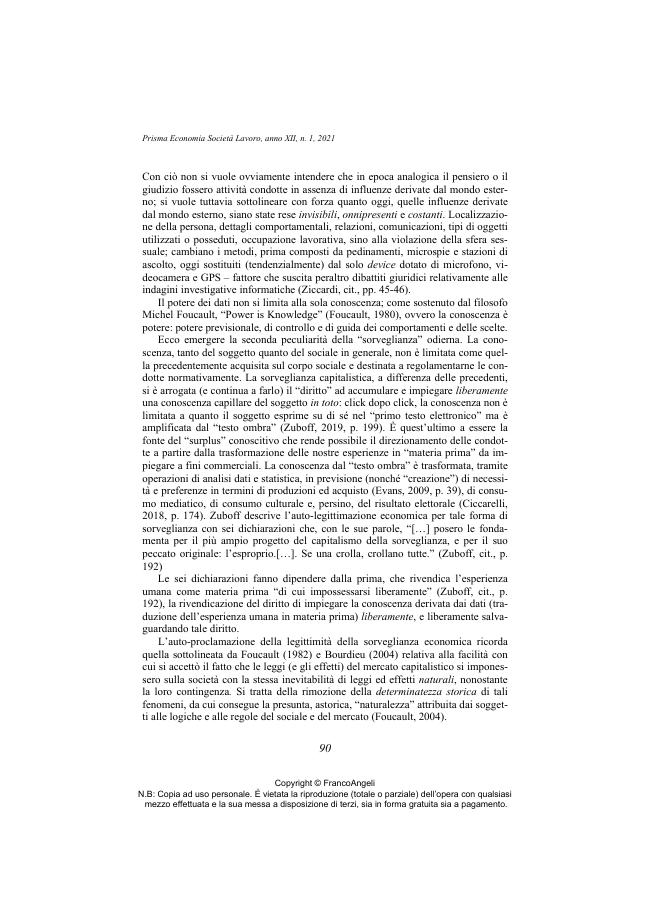Il ruolo dei nuovi media nella realizzazione pratica del diritto di informazione e del diritto di comunicazione
82-98 p.
Gli articoli 15 e 21 della Costituzione garantiscono due diritti fondamentali dell'individuo: il diritto "di informare e di informarsi", e il diritto di "manifestare liberamente il proprio pensiero con la parola, lo scritto e ogni altro mezzo di diffusione", ovvero di comunicare (Cost., art. 15; art. 21). Quali sono gli effetti della digitalizzazione su questi due diritti, considerata la sua influenza sul cambiamento strutturale dei mezzi di informazione e di comunicazione? Il presente testo propone un'analisi critica del fenomeno, mettendo in luce il ruolo del soggetto "utentecliente" nell'attività di profilazione che si realizza nelle piattaforme offerte dal mezzo (digitale) di comunicazione e di informazione. Dopo l'analisi del nuovo soggetto "digitalizzato" si proporrà un confronto critico con il soggetto di diritto cui fanno riferimento gli articoli 15 e 21.
Allo Stato dell'arte si rilevano difatti cambiamenti, di radice tanto economica quanto politica, sia nella pratica (realizzata dai dispositivi digitali) della "libertà di informarsi" sia, di riflesso, nella pratica del "manifestare liberamente il proprio pensiero". Questo consentirà un paragone tra il soggetto realizzato da tali pratiche e il soggetto del diritto di libertà di informazione e di comunicazione, con una conclusiva riflessione sul ruolo dei new media nella realizzazione di questi nostri diritti oggi. [Testo dell'editore].
Articles 15 and 21 of the Italian Constitution guarantee two fundamental individual rights: the right 'to inform and be informed', and the right 'to freely express one's thoughts by word, writing and any other means of communication', therefore to communicate (Cost., art. 15; art. 21). In recent years digitalization has been spreading to multiple sectors, including media, deeply influencing how citizens gather information and communicate their opinion. This text proposes a critical analysis of this trend shift, highlighting the new role of citizens within the digitalized media of communication and information. Therefore, the citizen is here considered firstly as the subject described in Articles 15 and 21 and, secondly, as the subject in the role of 'userclient' within the profiling activities that take place in digital platforms. In fact, the state of art reveals economic and political shifts in how the citizen informs himself and, as a consequence, how he freely expresses his thoughts.
Starting from these evidences in literature, the analysis of both the "theoreticaljuridical" subject and the "userclient" subject of the practices is conducted; then, a critical comparison between the two results is proposed. As a conclusion, the author underlines the critical differentiation between the subject that nowadays accomplishes such practices through the ICTs and the implicit and theoretical concept of this subject as it appears to be suggested in Articles 15 and 21 of the Italian Constitution. [Publisher's text].
-
Articles from the same issue (available individually)
-
Information
ISSN: 2036-5063
DISCIPLINES
KEYWORDS
- digitalizzazione, ICT, articoli costituzionali, informazione, comunicazione, pratiche
- digitalization, ICTs, constitutional Articles, information, communication, practices



